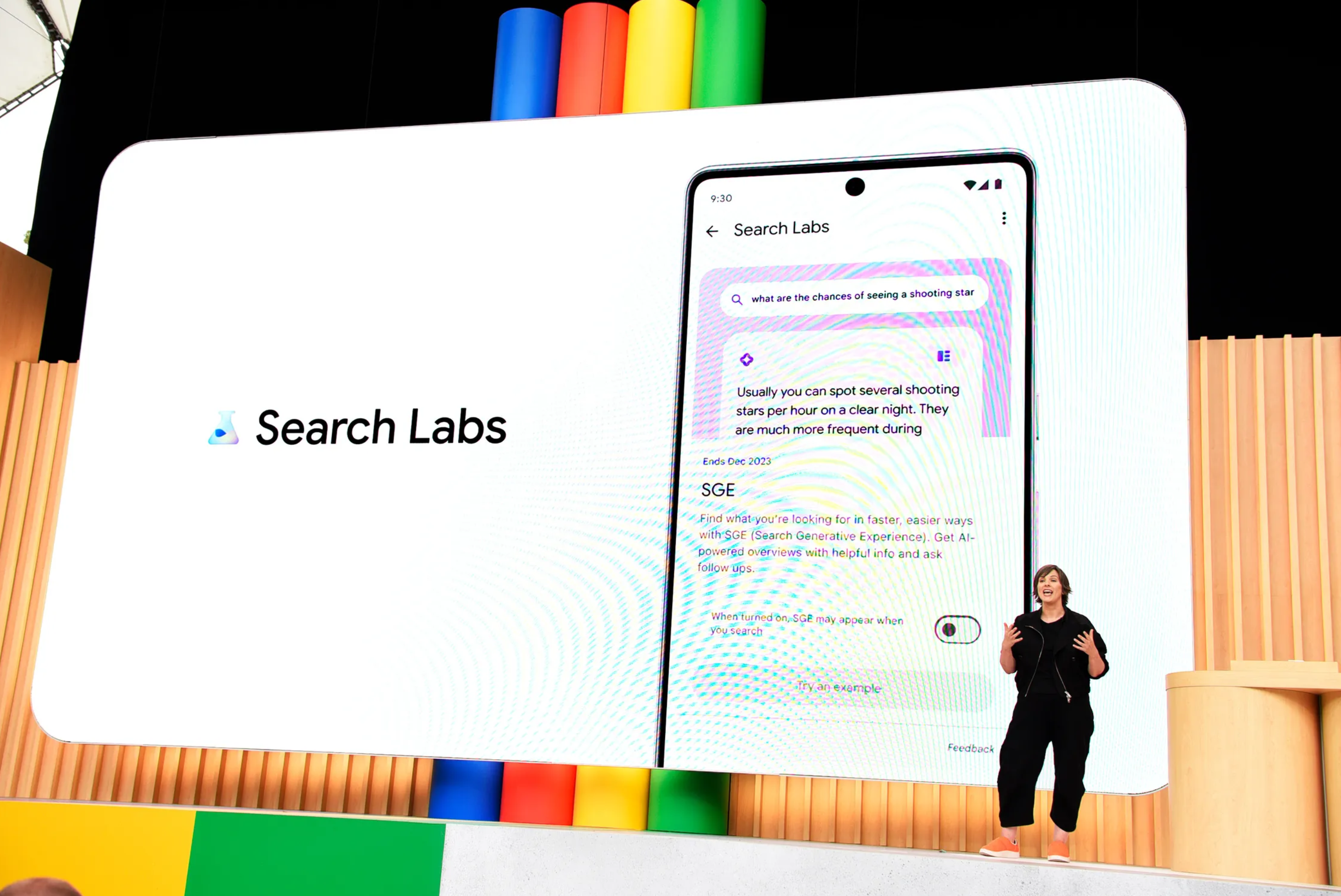A year ago, Google hinted that the future of search was intertwined with AI, and today, that vision is becoming a reality. Google has begun rolling out its “AI Overviews,” formerly known as the Search Generative Experience (SGE), to users in the U.S., with plans to expand globally. These AI-driven summaries are set to appear at the top of search results, marking the dawn of a new era in how we interact with the internet.
“AI is here to take the legwork out of searching,” says Liz Reid, Google’s new head of Search, who has been deeply involved in the evolution of AI within Google. This isn’t just about providing faster answers—it’s about transforming the way we search altogether. The traditional search engine, where users typed keywords into a box, is evolving into something much more intuitive and interactive.
Imagine you’re looking for the best yoga or pilates studio in Boston, rated over four stars, and within a half-hour walk of Beacon Hill. Google’s AI doesn’t just pull up a list of nearby studios—it gathers and synthesizes data from across the web and the Knowledge Graph to present a curated selection of the best options, complete with details on first-timer offers. It’s like having a personal assistant who understands the nuances of your request and delivers exactly what you need.
This isn’t just about convenience; it’s about making search more accessible and tailored to individual needs. Reid points out that not every search requires AI intervention. For simple queries, like navigating to a website, the AI steps back. But in more complex scenarios, where users might typically have to dig through multiple links and pages, AI shines by providing a comprehensive answer upfront.
Google’s AI efforts are powered by its Gemini model, which is finely tuned to prioritize factual accuracy over creativity. While this may result in straightforward, no-frills answers, it significantly reduces the risk of errors—something that’s crucial in today’s information-saturated world. Reid emphasizes that while AI might undercut low-value content, it’s designed to enhance the visibility of high-quality, expert perspectives. After all, users—especially the younger generation—are always on the lookout for genuine, human insights.
Google’s integration of AI into search isn’t just a step forward; it’s a leap. By reducing the need for multiple searches and providing richer, more targeted results, AI is set to change the way we interact with the web. For users, this means less typing, fewer tabs, and a more conversational experience with search engines. The future of search is here, and it’s powered by AI.




